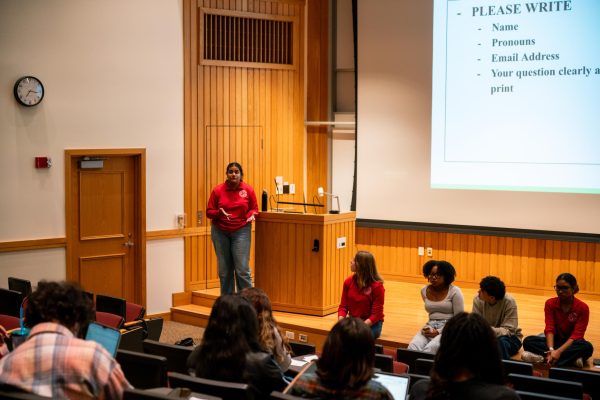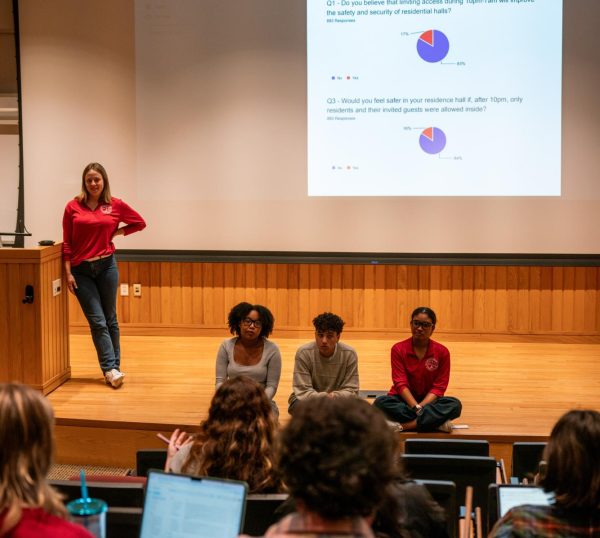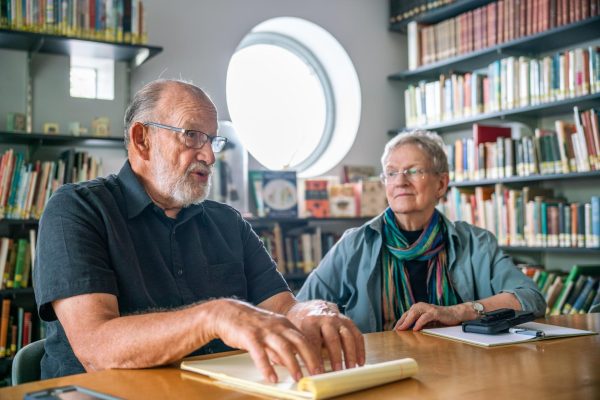College Tackles Coronavirus Concerns
As concern about a new coronavirus strain, 2019-nCoV, mounts globally, College administrators and other community members have adopted proactive communication and prevention strategies.
The Office of Communications has sent out four emails to students and faculty providing updates on the new coronavirus strain, 2019-nCoV, over the past few weeks. According to Interim Chief of Staff David Hertz, none of the communications have been compelled by institutional policy; rather, they came from a desire to keep the community informed.
“The point of providing the information is so that [people on campus] don’t invent scenarios and that we treat this situation with the gravity it deserves,” Hertz said, adding that he and other administrators have coordinated with Lorain County Public Health to craft communications. “It’s a serious situation. We don’t want to be dismissive, but we also don’t want to overdramatize.”
Despite the fact that there are zero confirmed cases in Ohio, and that the Center for Disease Control maintains the claim that the risk of contracting this coronavirus in the U.S. is low, Oberlin’s Chinese Student Association cancelled the annual Lunar New Year Banquet as a precaution. The Office of Communications plans to continue keeping students, faculty, and staff informed about the virus, while Student Health is boosting safety precautions on campus.
Students who traveled to China during Winter Term or winter break are carefully monitoring their health. Two students have contacted Student Health Services for evaluation, according to emails sent to all students; both were checked by medical professionals who decided their symptoms were not suggestive of coronavirus. Even so, officials decided it was best for one of the students to stay in isolated housing until Feb. 15, participating in their classes remotely and having meals delivered to their dorm room.
In comparison to past international viral outbreaks — such as swine flu or Zika virus — coronavirus might be particularly relevant to Oberlin’s population.
“I think the difference here is because Oberlin has such a significant community of people who were in China when this started, and that was the target zone [for quarantines],” said Vice President and Dean of Students Meredith Raimondo. “It connects to campus in a much more direct way than some of these other issues have. … It means that there has to be a much more elevated communication strategy and one that’s really tightly coordinated with public health authorities.”
Xiang Su, a Conservatory second-year from Wuhan, China, currently cannot return to Oberlin while her hometown is under quarantine. Su has received support from relevant College administrators throughout the quarantine.
On Jan. 22, the Chinese government cut off all transportation in and out of Wuhan to prevent the spread of the disease.
“People are full of contradictions,” Su wrote in a WeChat post that she shared with the Review and was originally written in Chinese on Jan. 23. “You miss home when you’re in school; you envy people in school when you’re trapped at home. … Being able to sit in the classroom listening to the professor now feels like such a joy.”
Director of the International Student Resource Center Josh Whitson also emailed all international students on Jan. 30 to address worries regarding the virus outbreak. In particular, the email discussed concerns over possible discrimination against international students from China.
“I also want to be very clear that bias or discrimination based on where you are from, where others assume you are from, or where you were over the past month is unacceptable,” Whitson wrote in the email. “If you feel you are being treated differently based on these characteristics, please contact me immediately so we can discuss how the college can best support you.”
For the latest novel coronavirus updates as they pertain to Oberlin, visit https://www.oberlin.edu/news/corona-virus-updates.





